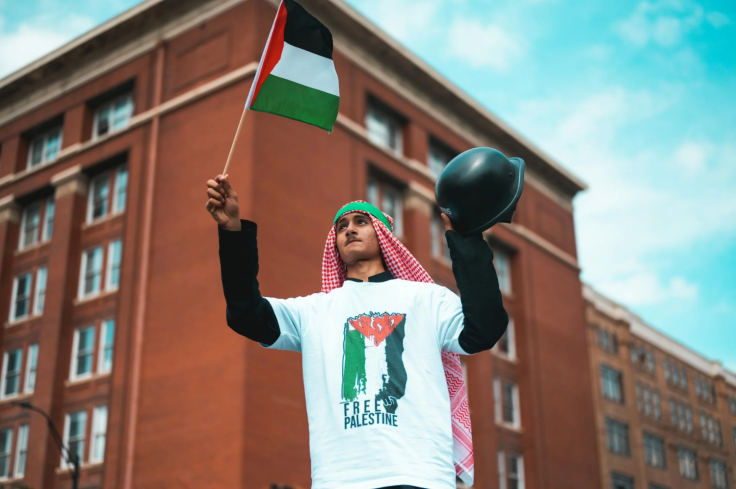In recent weeks, college campuses across the United States have become the battleground for a new wave of activism. Pro-Palestinian student groups, energized by the ongoing conflict in Gaza, are demanding that their universities take a stand against what they see as complicity in the violence. Central to their demands is a call for divestment from companies that profit from the conflict, notably weapons manufacturers.

The Emergence of Key Demands
As pro-Palestinian protests have spread, two key demands have emerged: transparency in how endowment funds are invested and divestment from companies profiting off the war in Gaza. These demands have resonated with students across the country, leading to protests, encampments, and negotiations with university administrators.
READ MORE : Students Erect Encampments Nationwide, Demanding University Divestment From Companies Linked To Israel
Transparency and Divestment: Universally Shared Themes
While student protesters' specific demands vary from campus to campus, the themes of transparency and divestment are universally shared. Students are calling on their universities to disclose how their endowment funds are invested, particularly in relation to companies that profit from the conflict in Gaza. They are also demanding that their universities divest from these companies, arguing that to do otherwise is to be complicit in the violence.
Negotiations and Concessions: A Mixed Response
The response from university administrators has been mixed. While some colleges have engaged with student protesters and made concessions, others have taken a more adversarial approach, leading to clashes with police and protester arrests. However, even among colleges that have engaged with protesters, the concessions have been limited, with administrators promising little if anything at all.
Examples of College Responses
One example of a college making concessions to pro-Palestinian protesters is Brown University, where protesters folded up their tents in exchange for face time with board members to make a pitch for divestment from companies profiting off the war. A divestment vote is scheduled for October, marking a historic first at Brown.
Similarly, Northwestern University has agreed to reestablish an Advisory Committee on Investment Responsibility, including student, faculty, and staff representatives. The university has also agreed to provide funding for Palestinian students and visiting faculty members, among other moves.
Congressional Response and Criticism
Colleges' decisions to consider protesters' demands have not gone unnoticed by lawmakers. Congressional Republicans have criticized the presidents of Northwestern and Rutgers University for their concessions to protesters, calling them "shocking" and "cowardly." As a result, the presidents of both universities, along with UCLA, will now testify before the House Education and Workforce Committee on campus antisemitism.
A Call for Engaged Leadership
Amid these protests and negotiations, there is a growing call for engaged leadership from college presidents. Roderick A. Ferguson, a professor at Yale University, argues that college presidents should engage with protesters and uphold the ideals of academic freedom and inquiry. He believes engaging with protesters is a better alternative than allowing situations to escalate to violence.
The Role of Universities in Social Movements
The current wave of pro-Palestinian protests on college campuses highlights the critical role that universities can play in social movements. By engaging with student protesters and considering their demands, universities have the opportunity to demonstrate their commitment to social justice and human rights. However, the response from universities has also shown that there is still much work to be done to address the underlying issues that fuel these protests. As the protests continue, it is clear that universities will need to navigate a complex landscape of competing interests and values to find a path forward that is both just and sustainable.
© 2025 University Herald, All rights reserved. Do not reproduce without permission.








